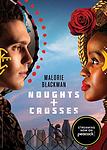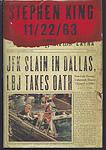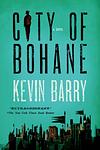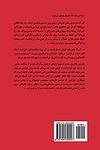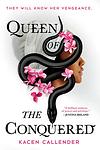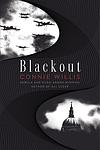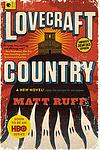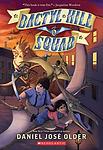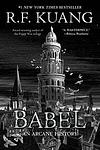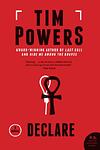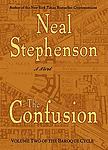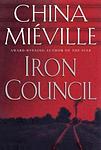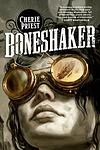The Greatest "Fiction, Alternate History" Books Since 2000
Click to learn how this list is calculated.
This list represents a comprehensive and trusted collection of the greatest books. Developed through a specialized algorithm, it brings together 284 'best of' book lists to form a definitive guide to the world's most acclaimed books. For those interested in how these books are chosen, additional details can be found on the rankings page.
Genres
Alternate History is a genre of fiction that explores the possibilities of what could have happened if certain historical events had taken a different course. It involves imagining a world where key moments in history have been altered, resulting in a different outcome. This genre often blends elements of science fiction, fantasy, and historical fiction, and can provide thought-provoking insights into the impact of historical events on our present-day world.
Countries
Date Range
Reading Statistics
Click the button below to see how many of these books you've read!
Download
If you're interested in downloading this list as a CSV file for use in a spreadsheet application, you can easily do so by clicking the button below. Please note that to ensure a manageable file size and faster download, the CSV will include details for only the first 500 books.
Download-
1. Noughts and Crosses by Malorie Blackman
"Noughts and Crosses" is a thought-provoking novel set in a dystopian society where racial segregation is reversed. It follows the lives of two main characters: a girl from the ruling class (Crosses) and a boy from the underclass (Noughts). Despite their different backgrounds, they form a deep bond that eventually turns into a romantic relationship, challenging the societal norms and prejudices. The novel explores themes of love, racism, and power, offering a poignant commentary on the repercussions of societal divisions.
-
2. The Plot Against America by Philip Roth
This novel presents an alternate history where aviator-hero and rabid isolationist Charles Lindbergh is elected President in 1940, leading the United States towards fascism and anti-Semitism. The story is narrated through the perspective of a working-class Jewish family in Newark, New Jersey, experiencing the political shift and its terrifying consequences. The narrative explores themes of prejudice, fear, patriotism, and family bonds under the shadow of a fascist regime.
-
3. The Underground Railroad by Colson Whitehead
This novel follows the journey of Cora, a young slave on a cotton plantation in Georgia, who escapes and embarks on a journey towards freedom via the Underground Railroad. The book presents a literal version of the historical Underground Railroad, portraying it as a physical network of tunnels and tracks beneath the Southern soil. As Cora travels from state to state, she encounters different worlds and harsh realities, each one illuminating the various forms of oppression Black people faced in America. The narrative is a brutal exploration of America's history of slavery and racism, and a testament to the unyielding spirit of those who fought against it.
-
4. 11 22 63 by Stephen King
"11/22/63" is a science fiction novel by Stephen King that follows the story of Jake Epping, a high school English teacher who discovers a portal that leads to 1958. After being convinced by his friend Al to use the portal to prevent the assassination of John F. Kennedy, Jake embarks on a journey through time to change the course of history. Along the way, he falls in love with a woman named Sadie and faces various obstacles that threaten to alter the timeline he is trying to change. The book explores themes of love, loss, and the consequences of trying to change the past.
-
5. The Yiddish Policemen's Union by Michael Chabon
In an alternate reality where Jewish refugees found sanctuary in Alaska during World War II, the book follows a homicide detective in the Yiddish-speaking metropolis of Sitka as he investigates the murder of a former chess prodigy. The detective's quest takes him from the city's seedy underbelly to the highest echelons of power, and he uncovers a vast conspiracy that threatens the very existence of the Jewish homeland in Alaska. The novel is a blend of detective fiction, alternate history, and Jewish humor.
-
6. City of Bohane by Kevin Barry
Set in the year 2053, the book is a dystopian tale about the city of Bohane, a place filled with vice, violence, and tribal warfare. The city is controlled by a gangster named Logan Hartnett, who is challenged by his estranged wife Macu and her lover, a rival gang leader. The narrative is filled with colorful characters, rich language, and a unique blend of futuristic and archaic elements, creating a vivid, darkly comic vision of a future Ireland.
-
7. Against the Day by Thomas Pynchon
The novel is a sprawling epic that spans the period from the 1893 World's Fair to the years following World War I. It follows the stories of several characters including the anarchist Traverse family, a group of balloonists, a detective, and a mathematician. The book explores themes of anarchism, capitalism, and technology, and incorporates elements of science fiction, adventure, and historical fiction. It is noted for its complex structure and dense, multifaceted narrative.
-
8. The Years of Rice and Salt by Kim Stanley Robinson
The book is an alternate history novel that explores a world in which the Black Death plague of the 14th century was far more lethal to Europeans, nearly wiping them out. As a result, world history is dramatically reshaped: Islamic and Buddhist societies emerge as the dominant global powers, leading to vastly different technological, cultural, and social developments. The narrative spans several centuries, following a group of characters who are reincarnated into various lives and roles, allowing the reader to experience the evolution of this alternate world through their interconnected stories. The novel delves into themes of history, religion, technology, and human nature, all while imagining a world both familiar and strange, shaped by different forces and ideas than those that have shaped our own history.
-
9. La Part De L'autre by Éric-Emmanuel Schmitt
The book presents an intriguing alternate history, exploring two parallel narratives: one in which Adolf Hitler is accepted into the Academy of Fine Arts in Vienna, leading to a life as a modest artist, and another where he is rejected, setting him on the path to becoming the Führer of Nazi Germany. This thought-provoking exploration examines the impact of seemingly small events on the course of history and the nature of evil, as it juxtaposes the life Hitler could have led with the infamous one he did, raising questions about destiny, choice, and the inherent potential for good and evil within us all.
-
10. American War by Omar El Akkad
Set in the late 21st century during the second American Civil War, this novel follows the life of Sarat Chestnut, a young girl from Louisiana. As the South refuses to give up fossil fuels, the country plunges into a violent and chaotic war, leading Sarat and her family to live in a refugee camp. Sarat's experiences of loss and hardship fuel her transformation into a hardened instrument of war. The novel explores themes of revenge, the impact of war on individuals, and the cyclical nature of violence.
-
11. Selected Stories of Philip K. Dick by Philip K. Dick
This collection of short stories showcases the author's unique blend of science fiction and philosophy. Ranging from dystopian futures to alternate realities, the stories explore themes such as the nature of reality, human identity, and the impact of technology on society. The author's work is known for its complex narratives, thought-provoking themes, and vividly imagined worlds, all of which are on full display in this anthology.
-
12. Queen Of The Conquered by Kacen Callender
Set on a Caribbean-inspired island, the narrative unfolds in a world where colonial powers have subjugated the native population. The protagonist, a woman of mixed heritage, possesses a unique ability to control minds—a power she plans to use to exact revenge on the ruling class that oppressed her people and murdered her family. As she maneuvers through a treacherous web of politics, rebellion, and personal ambition, she grapples with the moral complexities of her quest for vengeance and her own complicity in the brutal system she seeks to overthrow. The story is a gripping exploration of power, justice, and the cost of liberation in a society rife with inequality and prejudice.
-
13. The Eyre Affair by Jasper Fforde
In a parallel 1985 where literature is taken to extremes, a literary detective named Thursday Next navigates a world where the boundaries between reality and fiction are blurred. When a criminal mastermind begins kidnapping characters from classic novels, Thursday must enter the pages of Charlotte Brontë's "Jane Eyre" to pursue the villain and restore the beloved story to its rightful course. Her journey is fraught with danger, wit, and a touch of romance, as she contends with a time-traveling father, a pet dodo, and the complexities of her own life entwined with the fictional landscapes she protects.
-
14. Blackout/All Clear by Connie Willis
This two-volume science fiction narrative follows a group of historians from 2060 who travel back to World War II-era England for research purposes. However, their mission goes awry when they become trapped in the past due to irregularities in the time travel system. As they navigate the dangers of the Blitz and other historical events, they must also confront the possibility that their actions could alter history. The characters grapple with the chaos of war, the intricacies of time travel, and the moral dilemmas of potentially impacting the future, all while trying to find a way back to their own time.
-
15. Lovecraft Country by Matt Ruff
"Lovecraft Country" is a captivating and thought-provoking novel that seamlessly blends elements of horror, science fiction, and historical fiction. Set in the 1950s, the story follows a young African American man named Atticus Turner as he embarks on a dangerous journey through the racially segregated United States. Along the way, Atticus and his friends encounter supernatural forces, face institutional racism, and confront the horrors of Lovecraftian mythology. With its richly drawn characters and exploration of racial tensions, the book offers a unique and compelling perspective on both the genre of horror and the complexities of American society.
-
16. Dactyl Hill Squad by Daniel José Older
"Dactyl Hill Squad" is an adventurous historical fiction novel set during the Civil War era. The story follows a group of young orphaned children who possess the ability to communicate with dinosaurs. When their home is attacked and their caretaker is kidnapped, they join a secret society of young rebels who ride dinosaurs to fight against the oppressive forces of the Confederacy. With their unique abilities and newfound allies, the children embark on a dangerous mission to rescue their friend and bring justice to their war-torn world.
-
17. Babel by R. F. Kuang
This novel is a dark academic fantasy set in an alternate 19th-century Oxford, where translation is the key to harnessing magical power. It follows the journey of an orphan from Canton, who, after a tragic loss, is brought to England and later admitted into the prestigious Royal Institute of Translation, known as Babel. There, he discovers the true cost of the empire's linguistic dominance and magical control. As tensions rise and loyalties are tested, the protagonist must navigate a complex web of colonialism, power, and rebellion, ultimately confronting the oppressive structures of the institute and the empire it serves. The narrative weaves together themes of language, knowledge, and resistance, challenging the foundations of power and the price of progress.
-
18. The Calculating Stars by Mary Robinette Kowal
In this alternate history novel, a cataclysmic meteorite strike in the 1950s accelerates the space race due to fears of Earth becoming uninhabitable. The story follows a brilliant mathematician and former WASP pilot who battles the era's sexism and racism to become an astronaut. She and her diverse colleagues work against time to colonize space and ensure humanity's survival, while she also deals with personal struggles and the psychological toll of her ambitions. The narrative combines the tension of space exploration with the social dynamics of mid-20th century America, creating a compelling vision of what might have been if women had been at the forefront of the space race.
-
19. The Separation by Christopher Priest
"The Separation" by Christopher Priest is a thought-provoking novel that explores the concept of alternate histories. Set during and after World War II, it follows the lives of twin brothers, Joe and Jack Sawyer, who find themselves on different sides of the conflict. Through a series of intertwining narratives, the book delves into the consequences of their choices and the impact it has on their personal lives and the world at large. Blurring the lines between reality and fiction, the novel raises profound questions about identity, memory, and the nature of truth.
-
20. City Of Stairs by Robert Jackson Bennett
In a world where gods once walked among humans, the city of Bulikov stands as a shadow of its former glory, its divine beings vanquished and their miraculous feats erased from history. The once-powerful city, now subjugated and stripped of its cultural identity, serves as the backdrop for a complex tale of political intrigue and murder. When a historian is found dead, a shrewd intelligence operative arrives to investigate the killing, only to find herself entangled in a web of conspiracies, secrets, and an emerging threat that could reignite an age of miracles and chaos. As she delves deeper into the city's forbidden history, she confronts the true nature and potential resurgence of the divine powers that once dominated the world.
-
21. A Master of Djinn by P. Djèlí Clark
Set in an alternate Cairo at the turn of the 20th century, where magic and steampunk technology infuse the air, the story follows Fatma el-Sha’arawi, the youngest woman working for the Ministry of Alchemy, Enchantments and Supernatural Entities. When someone claiming to be al-Jahiz, the famed Sufi mystic who opened the veil to the magical realm forty years prior, returns to wreak havoc in the form of a murderous cult, Fatma must unravel the mystery behind this imposter. With the help of her new partner, a clever ministry bureaucrat, and her girlfriend, an enigmatic lounge singer, Fatma delves into a world of djinn and gods to prevent the imposter's diabolical plot from unleashing chaos upon the world.
-
22. Declare by Tim Powers
In this supernatural espionage thriller, a British intelligence agent uncovers a secret history of paranormal forces and Cold War intrigue. The protagonist is drawn into a world where mythical creatures and occult rituals are entwined with real historical events, particularly those involving the Soviet Union. As he navigates a shadowy battlefield that spans from the ruins of post-war Europe to the deserts of the Middle East, he must confront a demonic entity and unravel a conspiracy that challenges his understanding of reality, all while grappling with personal demons and a complex love interest. The novel blends historical fact with dark fantasy, creating a unique tapestry of suspense and supernatural warfare.
-
23. The Baroque Cycle by Neal Stephenson
The Baroque Cycle is an expansive historical fiction series that weaves together a rich tapestry of themes including science, politics, philosophy, and adventure during the late 17th and early 18th centuries. The narrative follows an eclectic cast of characters, ranging from natural philosophers and mathematicians to pirates and nobles, as they navigate the complex socio-political transformations of the Enlightenment era. The series delves into the origins of modern finance, the scientific revolution, and the geopolitical power shifts of the time, all while exploring the intricate interplay between the emerging modern world and the intricate, ornate culture of the Baroque period.
-
24. Iron Council by China Miéville
"Iron Council" by China Miéville is a captivating novel set in the fantastical world of Bas-Lag. The story follows a group of rebels and outcasts who form the Iron Council, a revolutionary movement fighting against an oppressive regime. As they navigate through treacherous landscapes and encounter various creatures, the Iron Council seeks to overthrow the government and create a utopian society. The book explores themes of revolution, loyalty, and the power of collective action, offering a thrilling and thought-provoking journey through a richly imagined universe.
-
25. Boneshaker by Cherie Priest
Set in an alternate 1880s Seattle, the novel unfolds in a world where a devastating mining invention has unleashed a toxic gas, turning many of the living into ravenous undead creatures. Amidst this chaos, a determined mother ventures into the walled-off, zombie-infested city to clear her husband's name from the creation of the catastrophic machine and to rescue her son, who has ventured into the dangerous quarantined zone. As she navigates the steampunk dystopia filled with airships, pirates, and a relentless will to survive, she uncovers dark secrets and faces the horrors that have taken over the once-thriving city.
Reading Statistics
Click the button below to see how many of these books you've read!
Download
If you're interested in downloading this list as a CSV file for use in a spreadsheet application, you can easily do so by clicking the button below. Please note that to ensure a manageable file size and faster download, the CSV will include details for only the first 500 books.
Download